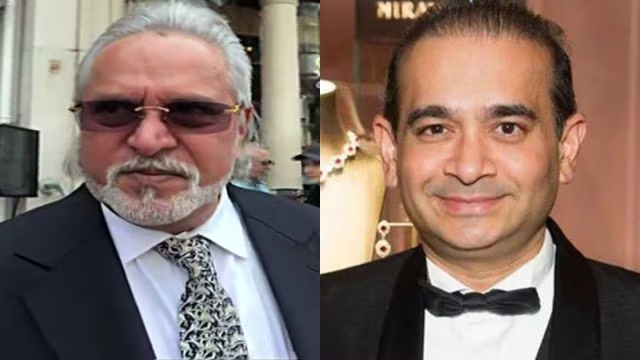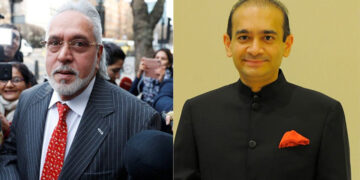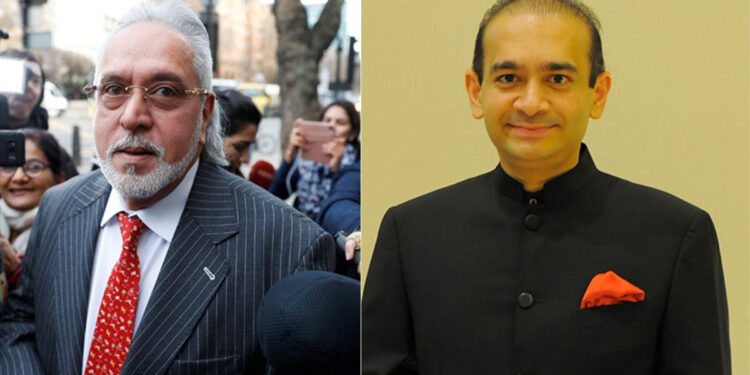UK officials visit India’s Tihar Jail to inspect conditions as part of extradition proceedings involving high-profile economic offenders Vijay Mallya and Nirav Modi. Learn about the inspection, legal framework, and implications for bilateral relations.

UK Officials Visit Tihar Jail Amid Extradition Efforts for Economic Offenders
As India intensifies efforts to bring back economic fugitives Vijay Mallya and Nirav Modi, UK officials recently visited Tihar Jail to inspect the prison’s facilities and living conditions. The visit is part of the due diligence process required under extradition treaties and reflects the growing cooperation between India and the United Kingdom in addressing financial crimes. This article explores the significance of the visit, the extradition process, and the broader implications for international law enforcement collaboration.
Background: The Cases of Vijay Mallya and Nirav Modi
Vijay Mallya, once a prominent businessman and liquor baron, is accused of financial fraud, money laundering, and defaulting on loans amounting to over ₹9,000 crores (approx. USD 1.2 billion). Similarly, Nirav Modi, a diamond merchant, stands accused of orchestrating one of India’s largest banking scams involving ₹14,000 crores (approx. USD 1.7 billion) through the Punjab National Bank.
Both individuals fled India before facing trial and have since been residing in the UK. The Indian government has been actively pursuing their extradition, citing strong evidence and formal requests under existing treaties. Their extradition is seen as a test case for combating cross-border financial crimes.
Why the Inspection Matters
The visit by UK officials to Tihar Jail is not a routine exercise. Under international extradition law, especially agreements between India and the UK, a country must ensure that the person being extradited will not face human rights violations, including torture, overcrowding, or inadequate medical care.
The inspection is meant to assess the prison’s infrastructure, security, healthcare, and treatment of inmates. UK authorities are likely verifying that both Mallya and Modi will be kept in conditions consistent with international human rights standards. Any concerns raised during this inspection could delay or complicate the extradition process.
The Extradition Process and Legal Hurdles
Extradition between India and the UK is governed by the Extradition Treaty signed in 1992 and amended subsequently. While the treaty provides a framework, extradition requests must meet certain criteria:
- Dual Criminality – The act must be a crime in both jurisdictions.
- Evidence Requirement – Sufficient prima facie evidence must be presented.
- Human Rights Considerations – The requesting country must ensure the individual’s rights are protected.
Defense lawyers for Mallya and Modi have raised multiple objections, citing the political nature of their cases, possible inhumane prison conditions, and delays in legal proceedings. The inspection by UK officials helps determine whether these objections are valid and whether extradition can proceed.
India-UK Relations and Economic Crimes
The extradition efforts also reflect growing collaboration between India and the UK on tackling financial fraud and corruption. With India emerging as a global economy and foreign investment surging, cross-border crimes pose significant threats to economic stability.
Extraditing high-profile offenders sends a strong message to financial criminals that fleeing jurisdiction will not ensure impunity. Furthermore, it strengthens India’s diplomatic and legal partnerships, paving the way for more robust information sharing, anti-money laundering frameworks, and joint investigations.
Challenges Ahead
Despite progress, challenges remain. The legal process in the UK involves multiple appeals, potential delays, and arguments over the fairness of trial procedures. Human rights watchdogs have also urged both governments to ensure that due process is followed without compromising the accused’s dignity.
For India, securing evidence that meets the UK’s judicial standards, maintaining diplomatic pressure, and addressing prison reform concerns are crucial steps. For the UK, balancing human rights obligations with treaty enforcement is key to maintaining credibility.
What This Means for Future Cases
The outcome of these extradition cases could set precedents for future international cooperation on crimes involving fraud, tax evasion, and money laundering. It highlights the importance of institutional transparency, accountability, and shared responsibility in addressing complex global threats.
If extradition is approved, it will boost India’s reputation as a country committed to prosecuting economic crimes. Conversely, delays or rejections could raise concerns about the effectiveness of bilateral agreements.
The inspection of Tihar Jail by UK officials underscores the seriousness with which both countries approach extradition requests involving high-profile offenders like Vijay Mallya and Nirav Modi. Beyond individual cases, this process reflects the broader challenges and commitments required to ensure that financial crimes are addressed through legal channels without compromising human rights. The coming months will be critical in determining how India and the UK collaborate in the pursuit of justice.
READ ALSO…...Nepal Gen Z Protests Turn Deadly Amid Social Media Ban | India Issues Advisory 2025















 Categories
Categories









